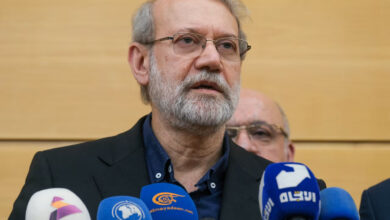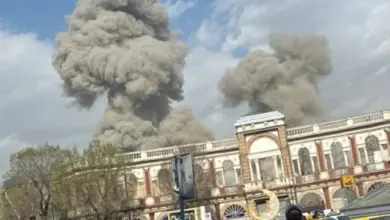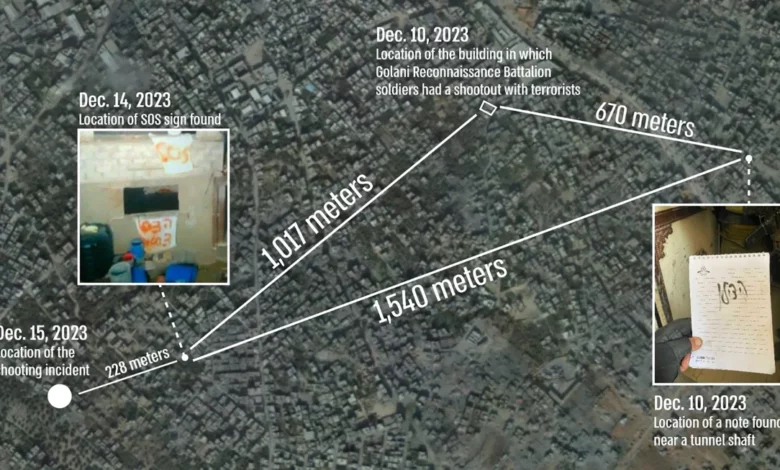
Israel’s army chief said troops failed in their mission to rescue three hostages mistakenly killed in Gaza earlier this month as the military on Thursday published its report into the incident.
Herzi Halevi, chief of the General Staff of the Israel Defense Forces (IDF), said the shootings “could have been prevented,” but he determined there was “no malice in the event and the soldiers carried out the right action to the best of their understanding of the event at that moment.”
Yotam Haim, Alon Shamriz and Samer Talalka were captured by Hamas on October 7 and taken to Gaza. The three men were accidentally killed during an IDF operation around the Gaza City neighborhood of Shejaiya on December 15 in an incident that shocked Israeli society.
The report into their deaths concluded that Israeli command ranks had information about the presence of hostages in the area where they were killed and “even took actions to prevent strikes on locations suspected of having hostages.”
But the investigation also found that Israeli forces in the field had “insufficient awareness” of the possibility that hostages would approach them or that they would encounter them other than as part of a special operation to free the Israelis held.
According to the findings, on December 15, an Israeli soldier fired toward three hostages “identified as threats,” killing two of them. The third hostage fled, and the battalion commander gave an order to hold fire to identify the third person.
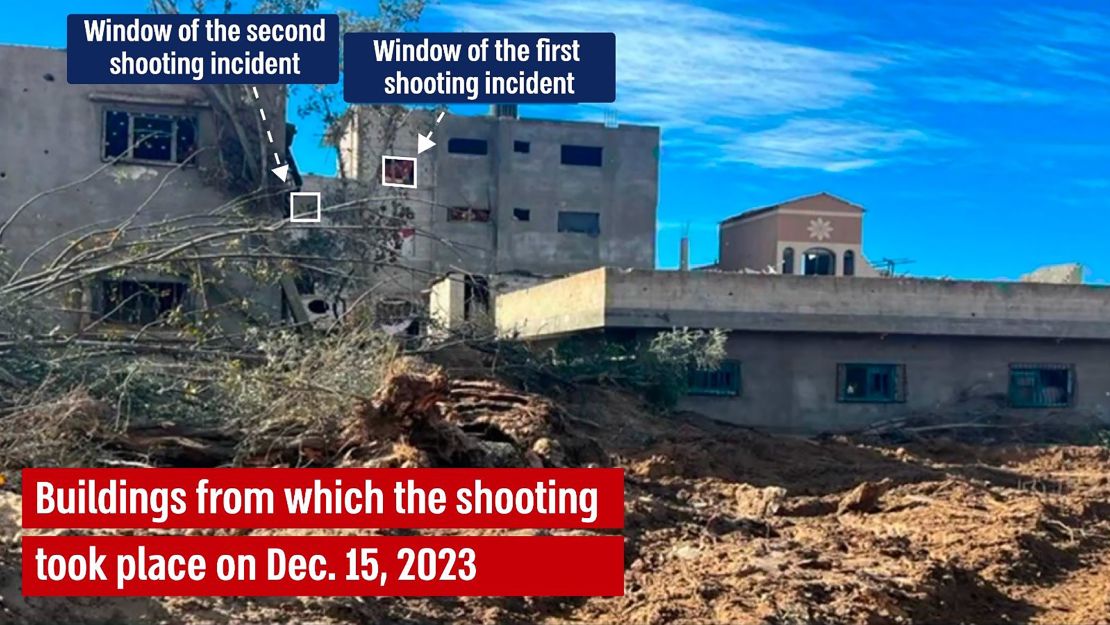
After the commander heard someone screaming “help” in Hebrew, he called on the person to come toward the soldiers; the hostage emerged from a building and moved toward the troops, the report said. Two soldiers didn’t hear the commander’s orders to hold fire “due to noise from a nearby tank” and fatally shot the third hostage, according to the investigation.
The probe also concluded that the “hostages were walking shirtless, and one of them was waving a white flag, standing at a point with limited visibility relative to the position of the soldier that fired the shot.”
In the days before the killing of the hostages, the report said Israeli soldiers heard cries for help in Hebrew coming from a building while troops fought Hamas gunmen, adding that the soldiers thought it was an attempt to trap them. Also, a camera that was mounted on a military dog during the fight captured the voices of the hostages crying for help.
That same day, a note reading “Help” in Hebrew was found at the exit of a tunnel, the report claimed, which Israeli soldiers interpreted as an attempt by Hamas to lure them.
On December 14, Israeli drone footage identified signs reading “SOS” and “Help, 3 hostages” on a building 200 meters (656 feet) from where the hostages were killed the next day, the report said, claiming the Israeli military suspected this was a trap after blue barrels that it says are commonly found in rigged areas were spotted nearby.
Halevi, the military IDF chief, concluded that the killing of the hostages shouldn’t have happened and didn’t match up to the risk of the situation.
“The standard operating procedures are necessary, and they are also intended to protect us, so that we do not kill our own forces,” he said. “They set and impact fateful decisions, as happened in this event.”
Israeli soldiers in Gaza are now being told to “exercise additional caution” when encountering people in civilian clothes following the hostages’ accidental killing, IDF spokesperson Jonathan Conricus told CNN earlier this month.
“What we have told our troops is to be extra vigilant and do one more safety check before dealing with kinetics with any threat that they face on the battlefield,” Conricus said, “but it is a very challenging environment that our troops are in.”
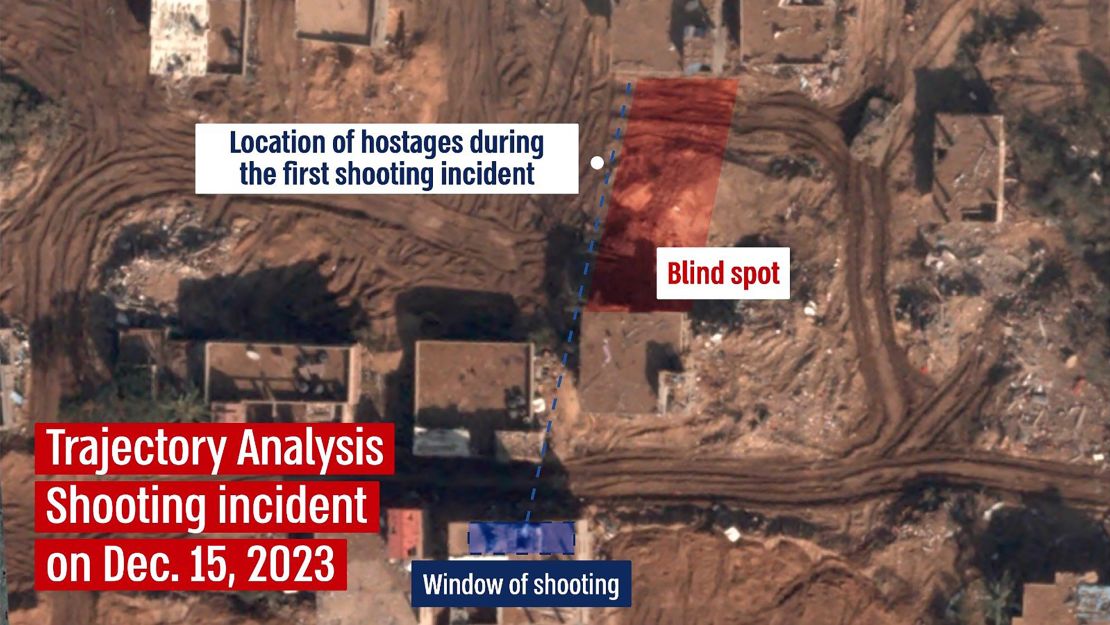
Who were the hostages?
All three hostages were young men. Haim and Shimriz were kidnapped from Kibbutz Kfar Aza, while Talalka was taken near Kibbutz Nir Am.
Talalka, 25, was a member of Israel’s Bedouin community and the eldest of 10 children. He lived in the town of Hura and worked with his father and brothers at a chicken hatchery near Kibbutz Nir Am.
On October 7, he was with his father at the chicken hatchery and told his sister in a phone call that he had been injured by terrorist gunfire, until the call disconnected, according to the Israeli Hostages and Missing Persons Families Forum.
Haim, 28, was a gifted musician and heavy metal fan. He had played the drums for 20 years and was supposed to perform at a Metal Music Festival in Tel Aviv on October 7 with his band, Persephore. Yotam last spoke with his family that morning. He told them his house had burned down before losing contact with them at 10:44 a.m., soon after which he was kidnapped by Hamas, according to the family forum.
Less is known about Shimriz, but his family, like those of Talalka and Haim, had spoken publicly about their ordeal
Haim’s mother, Iris, had told Israel’s Channel 11 that she had faith her son would return even without raising her voice at the government.
“Some people think that if they don’t shout, no one will bring their children back. I tell them: we can do it peacefully and through a respectful dialogue. The children will come back, I have no doubt,” she said.
Negotiations to release the more than 100 hostages still held in Gaza by Hamas and other Palestinian militant groups have yielded little results in recent weeks.
“We’re holding talks even during these very moments,” Prime Minister Benjamin Netanyahu said Thursday at a meeting with hostages’ families. “I can’t elaborate on the status – we’re operating in order to return everyone.”
CNN’s Tamar Michaelis, Richard Allen Greene and Joshua Berlinger contributed reporting.


